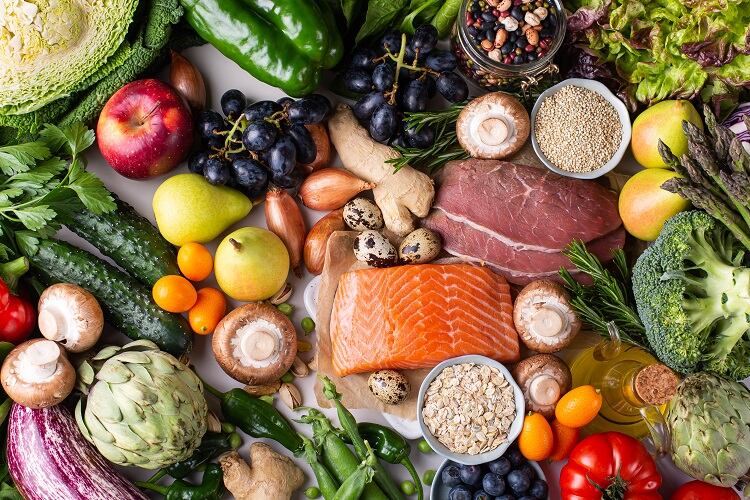Food culture is a set of practices, beliefs and attitudes around food – namely, the attachment of meaning to food. In a panel at the Italian Embassy last week, Dr Roberta Re, food and drink investment specialist and the panel’s host, said of Italian food “it is our culture, it is our religion.”
Yet, historically, English food has been considered rather differently. French philosopher Voltaire famously said that England has “a hundred religions and only one sauce.”
Many would argue that this is outdated and untrue, that England has many of the world’s greatest restaurants. However, this is perhaps beside the point – more important than the number of good restaurants is culture, the meaning attached to food.
The interplay of food and culture is vital in understanding the reasons why some diets are more nutritious than others.
The Mediterranean diet as heritage
“We are trying to move to a Western diet and at the same time the prevalence of obesity...diseases related to obesity are increasing,” said Lorenzo Maria Donini, Professor of Applied Dietic Science and Techniques at the University of Rome, during the panel.
“So we have to move back to the Mediterranean diet and we have to move back to all the values that are represented by the Mediterranean diet. The Mediterranean diet is healthy for people and for the planet.”
The Mediterranean diet - rich in foods such as seafood, fruits, and nuts - is a key pillar of Italy’s food culture, representing not just food but, as Donini said, ‘values.’

It has been central to its opposition to front-of-pack labelling scheme Nutri-Score, for instance, which the Italian government says discriminates against ‘traditional foods’. According to many, the Mediterranean diet has abundant health benefits.
Donini stresses this nutritional aspect of the Mediterranean diet. “We have a huge amount of literature demonstrating the positive effects of Mediterranean diet on the prevention of all non-communicable diseases. And we have very few papers showing the role of single nutrients or single foods in the prevention of non-communicable diseases.”
In the end, the appeal of the Mediterranean diet stems from the interplay of concern for nutritional value of food, and concern with culture and history.
“We have to recover the Mediterranean model in Italy,” Donini said, “and we have to remember that the Mediterranean diet is also an example of a sustainable diet from an environmental point of view, but also from a social, cultural and an economic point of view.”
Food culture, believes Professor Daniela Martini, Assistant Professor at Università degli Studi di Milano, should move away from prioritising single nutrients and more towards whole groups of foods.
“Food policies focus on nutrients because they are important,” she said. “But more recently, literature is shifting to what's probably mentioned as positive nutrition. So just to mention the Global Burden of Disease study that demonstrates that is much more important to promote the consumption of foods for groups that we consume in lower amount than expected.
“So we should consume more fruit, more legumes, more vegetables, more wholegrain and this is a completely different approach compared to the previous one to limiting nutrients.”
Class, culture and food
Food culture is not just affected by intangible ideals, but often by real material circumstances as well. The way we think about food depends on how much time we have to cook, how much money we have to buy ingredients, and the particular types of food we have access to.
In short, if we are in a situation where we can’t take having any food for granted, the complexities of each food’s individual composition become less important.

In the UK, class impacts food tremendously. “We know that at least in the UK, the families that are living their daily lives in really challenging contexts are those that are really very much led towards having a very unhealthy diet,” said Professor Christina Vogel, Deputy Director of the Centre for Food Policy at City University of London, “which really does lead to lifelong increased trajectory of obesity and diet related diseases and then a shorter life course.
“And really what we hear is that through the families that we speak to who are living in these really challenging situations, there's five key pathways that really lead them to having a poor diet.
“And one is the high cost of healthy food. It's three times more expensive to eat a healthy diet aligned with the dietary guidelines than it is eat a less healthy diet.
“We also know that the quality of housing in which people live is really challenging. There's not the same level of cooking equipment, refrigeration, even storage for food, access to food.
“There's immense time pressures on families, with, you know, many juggling multiple jobs or family responsibilities, caring responsibilities for various members of the family.”
Access to other forms of cultural pursuit may seem isolated from the issue of food, but it is immensely linked both to food culture and families’ overall nutrition, especially in instances of financial precarity.
“So I might not be able to take my family to a soft play or to the theatre or to go and see a movie,” said Vogel, “but actually I can take them to a fast food outlet. And they have a great time and we have a really good family time.”
Because of material circumstances shutting off other opportunities for these families to spend time together, such as the theatre and cinema, the fast food restaurant is imbued with meaning. This, of course, may lead to them attending fast food restaurants more often, which is detrimental to nutrition.

“One of the things we don't have in the UK is a strong food culture,” added Professor Paul Gately, CEO of obesity charity Obesity UK, “there is seen to be a strong food culture in London . . . if you have money. If you don’t have money there’s not really a food culture that we exist in.
“And I think that is a problem for us to shape. But the fact that we are trying to develop a better food culture, I think is a small, positive step in the right direction.”





